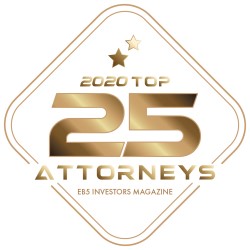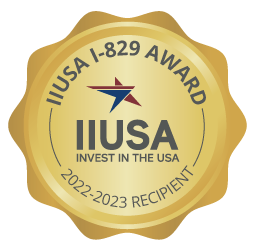Individuals who were born in Hong Kong and have a Hong Kong passport maintain advantages over Chinese passport holders when it comes to immigration to the United States. The main advantage is that Hong-Kong is considered a separate “country” or region than Mainland China for U.S. immigration purposes. Additionally, Hong Kong allows dual citizenship, which ensures that those seeking U.S. citizenship will also be able to retain their Hong Kong citizenship.
When applying for a U.S. immigrant visa, the country of birth is extremely important; this is because the country of birth decides the prospective immigrants’ “Chargeability”. “Chargeability” is a term used in U.S. immigration law to describe what country’s quota an applicant’s visa gets charged to; this is an extremely important concept for countries facing retrogression, such as China and India. For example, an individual born in Mainland China who holds a Hong Kong Passport will be charged to China and cannot be charged to Hong Kong unless he or she is a minor child whose parents were born in Hong Kong or his/her spouse was born in Hong Kong.
As mentioned above, Hong Kong is considered a separate “country” for U.S. immigration purposes. Therefore, individuals born in Hong Kong are charged separately than individuals born in China. This is a massive advantage that Hong Kong born applicants have, as Mainland born Chinese nationals’ face extensive wait times due to regression in almost all employment and family-based visa categories; this is even true with the EB-5 visa, which is considered one of the quickest routes to obtain a green card. Accordingly, Hong Kong born applicants (and their spouses and children) can obtain a green card much faster than applicants from Mainland China, India, and Vietnam.
Popular Green Card Pathways – EB-5, L-1A, and EB-1C
The economic success of Hong Kong has led to an explosion of wealth amongst Hongkongers; by some estimates, Hong Kong is home to over 500,000 millionaires. Accordingly, U.S. citizenship is a viable end goal for many residing in the fragrant harbor.
The quickest and easiest way for Hong Kong born applicants to get a green card is through the EB-5 visa. To obtain the EB-5 visa, Applicants must invest $900,000 into an investment project of the applicant’s choice; the visa does not require a minimum level of education, an employment offer, or sponsorship. Due to recent changes in EB-5 adjudication policy announced in January of 2020[1], (which allows petitions filed by petitioners from countries are not subjected to the visa retrogression be adjudicated first) Hongkongers can expect to have their applications processed faster and a green card will be immediately available. Additionally, bank accounts in Hong Kong are not subjected to Mainland China’s capital control laws, which impose a $50,000 personal allowance for Chinese nationals moving money out of Mainland China. As such, it is relatively easy for individuals to invest in the United States from Hong Kong.
Another pathway to a green card is through the L-1A/EB-1C route; this is a great option for business owners in Hong Kong who work in an executive or managerial capacity. The applicant can be in the United States in a matter of months on the L-1A visa and can eventually obtain a green card by applying for the EB-1C visa (which is relatively similar to the L-1A visa in its required qualifications).
Multi-national companies in Hong Kong can establish an affiliated company in the United States and transfer their employees that are working in a managerial or executive capacity over on the L-1A visa or their employees with “specialized knowledge” over on an L-1B visa. Alternatively, our team also offers pathways for Hong Kong business owners to be matched with a U.S. business that has been vetted and that will meet their unique needs; this route is available to prospective Beneficiaries of the L-1A/EB-1C visa.
If the EB-5 or the L-1A/EB-1C route is not an option, Hongkongers can also apply through more “traditional” routes when you have a job from a U.S. company. Again, Hongkongers enjoy the advantage of no retrogression in almost all employment-based immigrant visa categories.
While all of the above mentioned options are available to Hong Kong born applicants, they are facing increasing scrutiny under the Trump administration; that being said, our team is skilled at finding the option that is right for you and at giving you the best chance for an approval.
Darren Silver & Associates is an award-winning boutique immigration firm based in Los Angeles that has successfully represented both multi-national companies and high-net-worth individuals for over 25 years.
對於那些在香港出生的人來說,移民美國仍然是非常好的選擇
在申請美國移民時,香港出生並持有香港護照的個人比中國護照持有人更具優勢。主要優點是,對於美國移民來說香港被認為是與中國大陸不同的單獨“國家”或地區。此外,香港允許雙重國籍,這確保了尋求美國國籍的人也將保留其香港國籍。
在申请美国移民签证时,出生地至关重要。因为出生地决定“Chargeability”。 “Chargeability”是美国移民法中使用的一个术语,用于描述申请人的签证要占用的国家/地区配额;对于中国和印度等面临排期倒退的国家来说,这是一个极其重要的概念。例如,在中国大陆出生并持有香港护照的个人将会适用中国大陆的名额和排期,除非他/她配偶是在香港出生的,否则无法适用香港地区的名额和排期。
比如我們前面所討論的,在申請美國移民的時候,香港被視為一個單獨的“國家”。因此,在香港出生的與在中國大陸出生的適用不同的名額和排期。這對於香港出生的申請人來說是巨大的優勢。因為幾乎所有職業移民和家庭移民類別中國大陸出生的申請人都需要面臨漫長的等待時間。即使EB-5投資移民簽證是獲得綠卡的最快途徑之一,中國大陸出生的申請人也需要面臨漫長的排期。因此,香港出生的申請人(及其配偶和子女)可以比來自中國大陸,印度和越南的申請人更快地獲得綠卡。
熱門的申請綠卡途徑 – EB-5, L-1A, and EB-1C
香港的經濟成功創造了香港人的財富激增。據估計,香港有超過50萬百萬富翁。因此,對於許多居住在芬芳海港的人來說,美國公民身份是一個可行的最終目標。
對於香港出生的申請人而言,最快、最簡單的方法就是通過EB-5簽證獲得綠卡。申請人只需要投資90萬美元到申請人選擇的投資項目中。沒有教育程度的要求,也不需要有雇主擔保申請。由於2020年1月宣布的EB-5裁決政策的最新變化,該新政策允許對不牽涉排期的國家的申請人遞交的申請優先審理。也就是說香港出生的申請人是不牽涉到任何排期的,他們遞交的申請是可以相對較快的被審理。批准之後很快就可以得到綠卡。此外,香港的銀行帳戶不受中國大陸外匯管制法的約束,該法律對中國公民將錢從中國大陸轉移出去施加了$ 50,000的個人免稅額。因此,個人從香港到美國投資相對容易。
通往綠卡的另一條途徑是通過L-1A / EB-1C。這對於香港的企業所有人來以及在公司內任職高層職位的管理人員來說是非常好的選擇。申請人可以在幾個月內獲得L-1A簽證在美國,並且最終可以通過申請EB-1C簽證獲得綠卡(與EB-1C簽證在其所需資格上相對類似)。
在香港的跨國公司可以在美國建立關聯公司,並以L-1A簽證的形式調任公司內任職高層職位的管理人員,或以L-1B簽證的方式調任具有“專業知識”的僱員。另外,我們的團隊還可以為香港企業所有人提供能夠滿足其獨特需求的美國企業的信息。
如果EB-5或L-1A / EB-1C途徑不適合您,您也可以通過其他“傳統”路線申請,比如通過工作綠卡。同樣,香港出生的申請人在幾乎所有以就業為基礎的移民簽證類別中都享有不排期的優勢。
儘管上述所有選項均適用於香港出生的申請人,但在特朗普政府的監督下,各類移民申請面臨著越來越嚴格的審查。我們的團隊善於尋找適合您的選項,並為您提供獲得批准的最佳機會。
Darren Silver&Associates是一家屢獲殊榮的精品移民公司,總部位於洛杉磯,已成功代表跨國公司和高淨值人士超過25年。
[1] https://darrensilver.com/uscis-makes-changes-to-address-eb-5-fairness-issues-in-visa-allocation/








